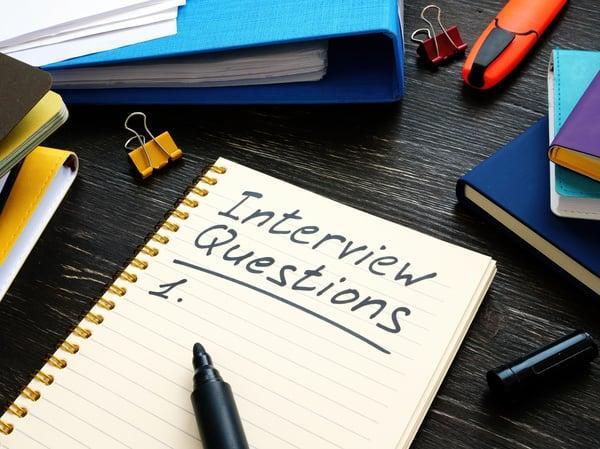20 Questions to Ask During an Interview
As a job seeker, you’re more likely to prepare to answer questions than to ask them. Asking good questions is another important skill for job seekers, however. It lets your editors know you are a critical thinker and that you’re seriously considering whether the position is a good fit.
Here are 20 questions you should always ask during an interview. Two main categories of questions are most helpful: ones that reveal the full scope of the job, and ones that help you know if the job is right. You will also want to ask a few questions about the next steps after the interview so you’re prepared should you receive a job offer.
Scope of the Job Questions
1. Can you offer specific details about the position’s day-to-day responsibilities?
Some jobs sound good in their descriptions, but it’s important to find out exactly what you’ll be doing in the position to be sure it’s something you want to do or think you will enjoy.
2. Describe the characteristics of someone who would succeed in this role.
This is a good way to find out what kind of person the company is looking for and to determine whether you fit these characteristics. You don’t want to get a job that is ill-suited to your skills or personality.
3. If I were in this job, how would my performance be measured?
Knowing how you will be evaluated tells you what you can expect in accountability and can point to a company’s level of organization. This question also tells the interviewer that you expect to be evaluated and believe you can succeed.
4. What are some of the challenges you’ve seen people in this role or on this team encounter?
A good way to know what to expect as far as difficulties in the position go is to set up your expectations for the level of challenge the position will bring if you take on the job.
5. Can you show me examples of projects I’d be working on?
This is a good way to get the company to be specific about your role and responsibilities and will give you a good picture of what the job will be like. Finding interesting projects can motivate you to stay more engaged in the role.
6. Can you tell me about the team I’d be working with?
Team members will make up a huge part of the job and can turn a ho-hum job into a fun one (and vice versa). Many people get into a job and find out it’s nearly impossible to succeed because of difficult or dysfunctional people on their teams, and you’ll want to avoid that.
7. Are there any job shadowing opportunities available for this role?
Job shadowing is a great way to get an inside view of the job and see what a day looks like. It can also help you figure out company culture and whether you would be a good fit for that company.
8. How frequently do employees make themselves available outside business hours?
Here’s another way to see the parameters and expectations of the job before you take it. Most people don’t want to be on call 24/7 but are willing to check email or take occasional phone calls outside office hours.
Rightness of the Job Questions
9. What do you like best about working here?
This question gives the hiring team a chance to brag about the company’s best qualities and strengths. You can also judge some of the company’s values by the answer.
10. Do you have a mentor system in place?
Mentorships are great assets in the workplace and are often key to advancement. Having someone show you the ropes, answer your questions, or challenge you to grow could be the difference between advancement and stagnation.

11. What are the most important values of your company?
A more direct question that will cut to company culture and give you an idea whether your own values are compatible with theirs.
12. How would you describe the office environment?
Some good answers here include positive, passionate, and encouraging. Even steady can be a favorable environment and indicate the office is even-keeled rather than full of dramatic ups and downs that can be exhausting for most people.
13. How do leaders promote employee growth and success?
This question might overlap with others like the ones about challenges, mentorship, or measurement, but it may cover some new ground and give you a picture of how leadership relates to employees.
14. What are the current goals the company is focused on, and how does this team work to support hitting those goals?
It’s important to know where you want to go, so questions about goal setting will illuminate that for you. You can also evaluate whether those goals are reasonable, doable, and similar to ones you’d enjoy moving towards.
15. What direction do you see this company heading in over the next few years?
This question can help you avoid a bait-and-switch situation, where you take a job and then the entire position changes overnight.
16. What’s different about working here than anywhere else you’ve worked?
Just another way of asking what makes the company unique or special, hopefully in a good way.
Next Steps Questions
These questions need no explanation but are necessary for logistics. You should follow any guidelines given here as closely as you can, but when in doubt, following up is always a good idea so long as you aren’t making yourself a nuisance.
17. When can I expect to hear about whether I will move on in the interview process?
18. When will you be making a decision about this position?
19. Should I follow up about the position? If so, when would that follow-up be appropriate?
20. Who is my contact person for this position (to send a “thank you” to)?
GDH helps job seekers connect with jobs that are right for them and their career paths. Join our talent network to get yourself noticed by some of the top companies in your field.
Posted on September 19, 2022, 08: 22AM







